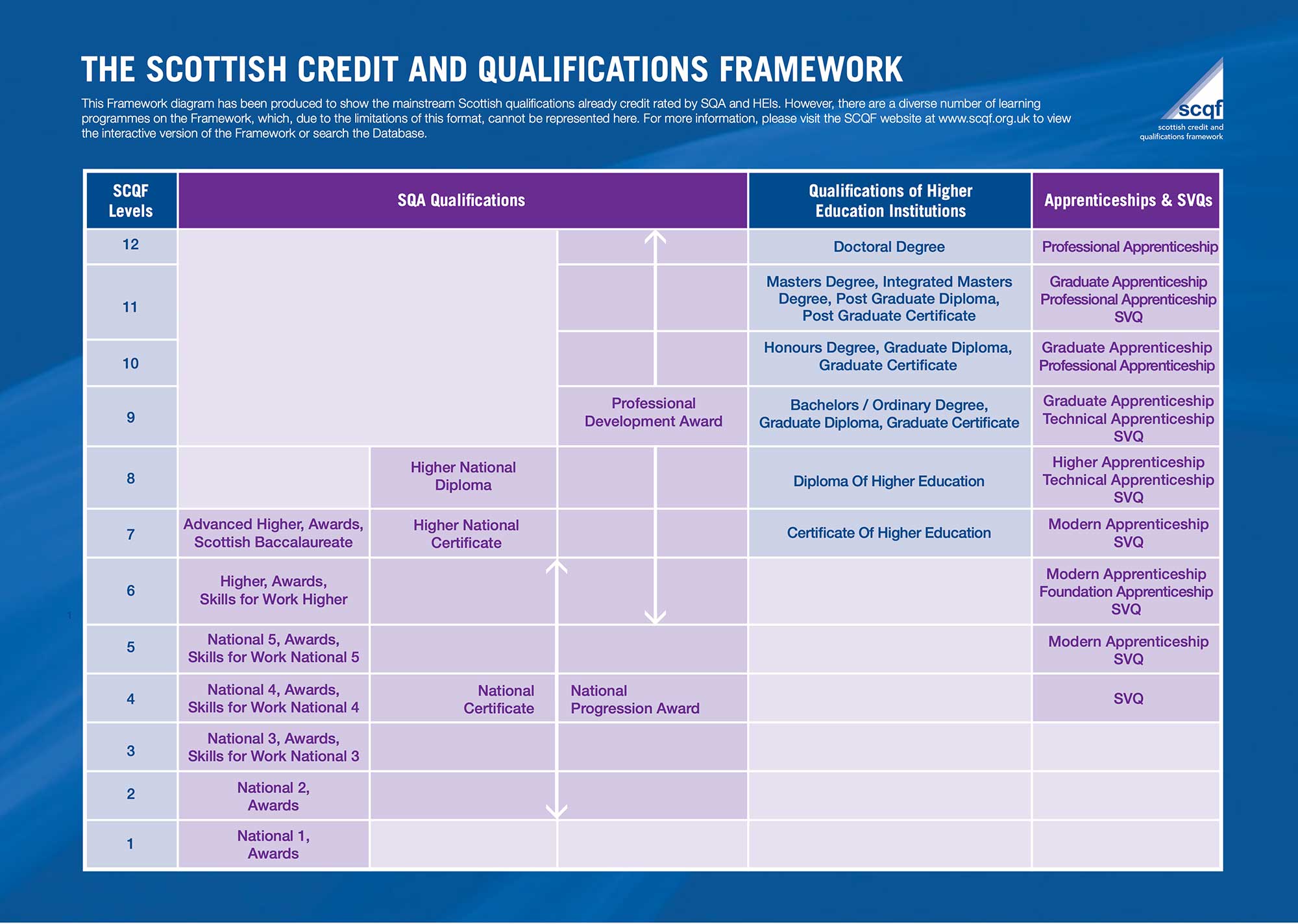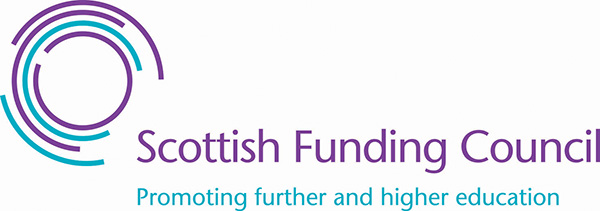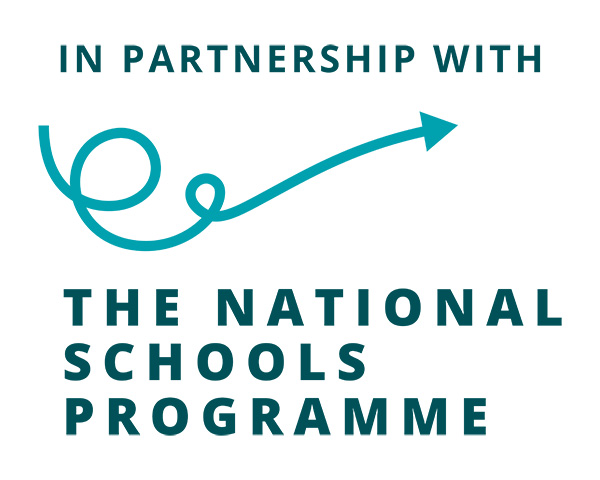As an S5 or S6 pupil you might not be aware of what the Articulation Routes is this page will explain what it means and will show you some articulation routes that you can take.
The Articulation Route is where you study at college first and then used the credit gained through study to enter University at an advanced level i.e. not first year.
Most college courses are 1 year in length (Highers, Access Courses and National Certificates (NC) and Higher National Certificates (HNC). The course which is important for using the Articulation Routes is the HNC- which is the same level of study as first year at University (Level 7). As you will see on the table below.

On successful completion of an HNC course, you could then progress to 2nd year of university (Level 8) or choose to study at HND level at college.
On completion of the HND course (one further year) you would then have exhausted your options at college typically. You would then be looking to use the Articulation Route to enter 3rd year of the programme relevant to you HND study.
Using the Articulation route means that going to college first then to university, doesn’t take any more time than if you were to go to university to begin with.
There can be many reasons why students choose to take the articulation route, in the first instance the entry requirements for college can be more achievable for some pupils than those of a university degree.
The mode of learning is different in colleges than universities, and some students prefer to continue their education in a college setting which can be similar to a school setting.
The main differences between college and university study are that:
- College tends to have a more timetabled hours in the week, university courses have more independent study
- College courses will have more continual, smaller assessments. Universities will have larger less frequent pieces of assessment
- Class sizes in college tend to be smaller, in universities classes sizes will be larger, 30-120 students (or more)
- College has more class based learning, universities have more lecture/ note taking based learning in contrast
You can expect college to be different to school in that you will be joining a diverse student body, you will find there are students from all different places and parts of the world. They will be of all different ages, and from different backgrounds. Not all of them will have come straight from school.
You will also be entering a new type of student environment where there are lots of extracurricular student activities to be involved in such as sports and societies and volunteering. All of these experiences will help develop your CV for your future employment. It is also not too late just now to think which things you can add to your college personal statement that you have been involved in outside of the classroom. Do you have any hobbies or interests that you can talk about in your application just now? If they relate to the area that you wish to study, then please make sure that you mention them and think about how your interests can help set you apart in the crowd.
Please remember to ask our student mentors all of your college related questions, it may seem daunting but they have all been in the situation that you are now. Where you might not quite be sure what happens after school.
Our mentors have progressed to life at university, so they can share their journey with you. The journey is often not a straight path to university, but you should know that there will always be help available there for you, regardless of your stating point. You may find it helpful to look at the type of support that is offered by universities, such as The University of the West of Scotland. UWS, admits many students via the articulation onto its programmes each year. You can find out more on the College to Uni Section of the UWS Website, which can be viewed here UWS College to Uni.



